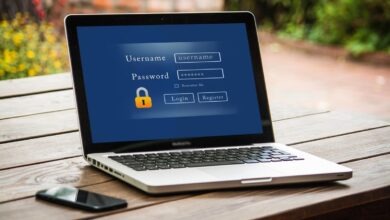Headache hurdles in fasting: Five tips to beat the pain
The cause of headaches during fasting may be attributed to imbalances in body fluids, dehydration, and stress induced by food deprivation. Consuming ample fluids during breakfast is one factor that helps reduce fasting headaches.

Fasting headaches occur when you don’t eat for longer hours than usual, such as when skipping a meal, practicing intermittent fasting, or observing fasting during Ramadan.
According to experts on the “Very Well” medical awareness website, fasting headaches typically occur after not eating for eight hours or more. The longer the period without food, the higher the likelihood and severity of the headache. The good news is that eating can alleviate the headache, which is usually of mild to moderate intensity.
Headache from fasting
Experts state that fasting headaches resemble tension headaches, but fasting can also trigger migraines in individuals prone to this type of headache. Research suggests that individuals who frequently experience headaches are more susceptible to fasting headaches compared to those who do not typically suffer from them. This indicates that the more accustomed the body becomes to spacing out meal times, the fewer fasting headaches occur, explaining why headache attacks may cease after several days of fasting. However, if the headache persists beyond this period, medical advice is recommended.
Reasons
Experts have pointed out that the exact cause of fasting headaches is still unknown. However, there are several theories that justify their occurrence, such as:
1- Hypoglycemia
One possible cause of fasting headaches is low blood sugar. For certain individuals with a specific genetic makeup, even slight fluctuations in blood sugar levels may impact pain receptors in the brain, leading to heightened feelings of pain and headaches during fasting. However, some scientists do not attribute headaches during fasting to blood sugar levels, citing the following reasons:
- Glycogen serves as the body’s glucose reservoir. In healthy individuals, liver glycogen levels can sustain normal blood sugar levels for up to 24 hours.
- Fasting headaches may manifest despite normal blood sugar levels.
- Low blood sugar resulting from insulin use does not induce headaches in migraine sufferers.
- Headaches, particularly non-throbbing ones, are not indicative of a hypoglycemic episode, which typically warrants emergency medical attention.
2- Caffeine withdrawal
Caffeine has been associated with headaches during fasting, and headaches due to caffeine withdrawal typically occur approximately 18 hours after the last intake of caffeine. This pattern resembles the onset of headaches during fasting.
Caffeine-related headaches share symptoms similar to tension headaches and fasting headaches. However, people may still experience fasting headaches even if they do not regularly consume caffeine, indicating that caffeine withdrawal is not the primary cause of fasting headaches.
3- Dehydration, stress and tension
The cause of headaches during fasting may be attributed to imbalances in body fluids, dehydration, and stress induced by food deprivation. Some studies have indicated that consuming ample fluids during breakfast is one factor that helps reduce fasting headaches.
4- Sharp changes in daily routine
The changes in lifestyle during Ramadan occur suddenly and can confuse the body. This begins with alterations in sleep patterns, meal times, and dietary habits, such as avoiding coffee and smoking. It also involves changes in digestion processes, leading to the elimination of waste from the digestive system and vital organs of the body.
All these changes can disrupt the body’s biology and internal clock, ultimately impacting brain activity balance negatively.
Experts also believe that staying up late and disrupting the sleep routine during Ramadan are actual headache triggers, especially for those suffering from headaches and epilepsy, whether they are fasting or not.
For prevention
Experts discussed several important tips and instructions to avoid injury and prevent headaches during the month of Ramadan:
- Cut down on coffee and stimulant intake.
- Ensure to drink plenty of water and fluids during breakfast to adequately hydrate the body.
- Consume a nutritious diet rich in fiber and protein to stabilize blood sugar levels and promote long-lasting feelings of fullness and energy.
- Gradually shift your sleep schedule. For instance, it’s advisable to delay bedtime by two hours each day, or maintain your regular bedtime and wake up at dawn to eat.
- If fasting headaches pose a challenge for you, seek medical advice regarding headache prevention through medication. Given that fasting headaches are more prevalent among individuals with a history of migraines, it’s preferable to take migraine medication before fasting.
Intermittent fasting
Intermittent fasting is an eating plan characterized by specific periods of eating, followed by specific periods of fasting. There are various intermittent fasting protocols.
Complaining of headaches is generally considered one of the side effects during the initial days of following an intermittent fasting schedule. Studies have revealed headaches to be the most common side effect among individuals on the intermittent fasting program, with 36% experiencing mild headaches, 36% experiencing moderate headaches, 17% experiencing severe headaches, which typically subside once eating resumes.
Research has not determined which intermittent fasting diet protocols are most likely to cause headaches. However, in general, the longer the fasting period, the more likely you are to experience headaches.













